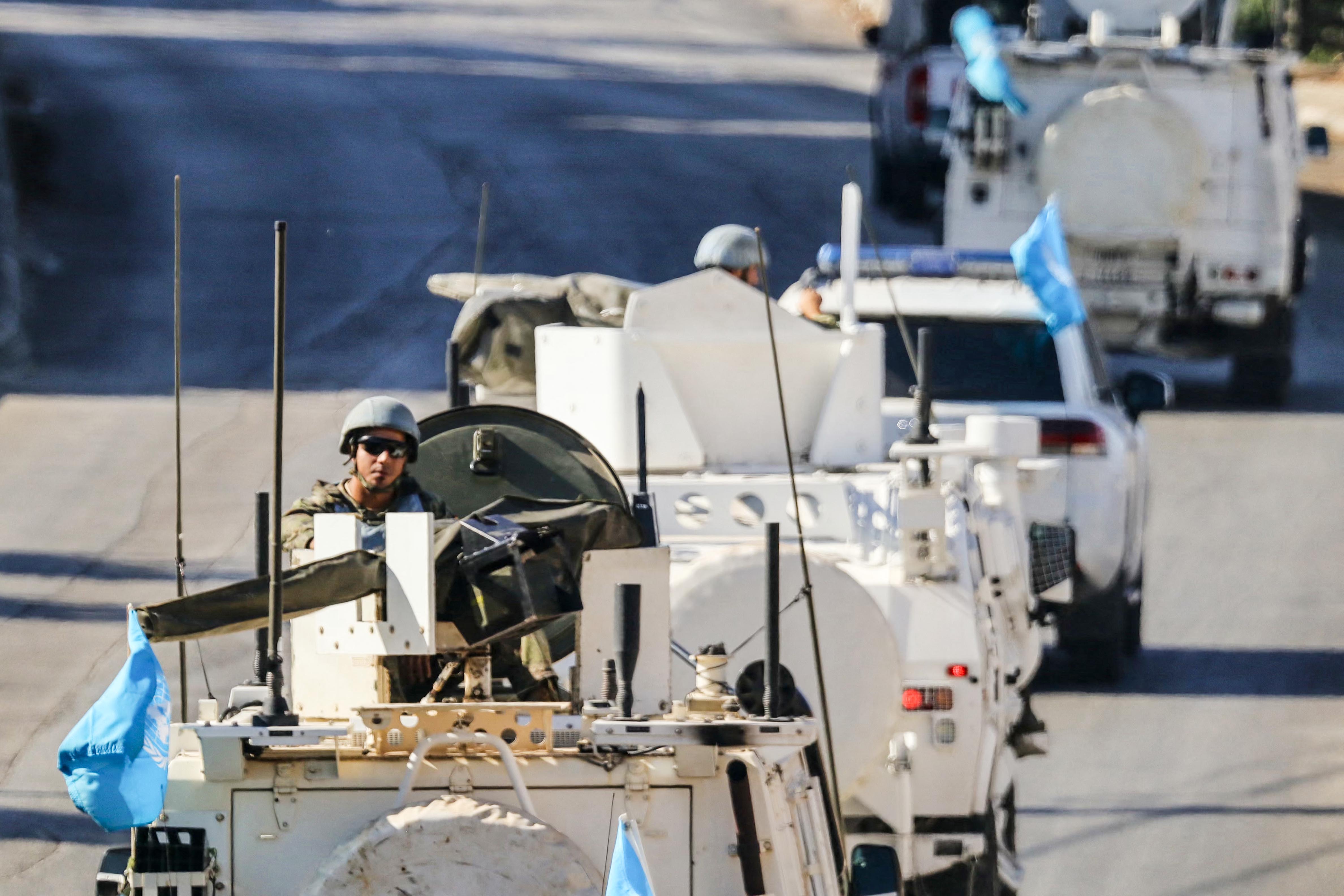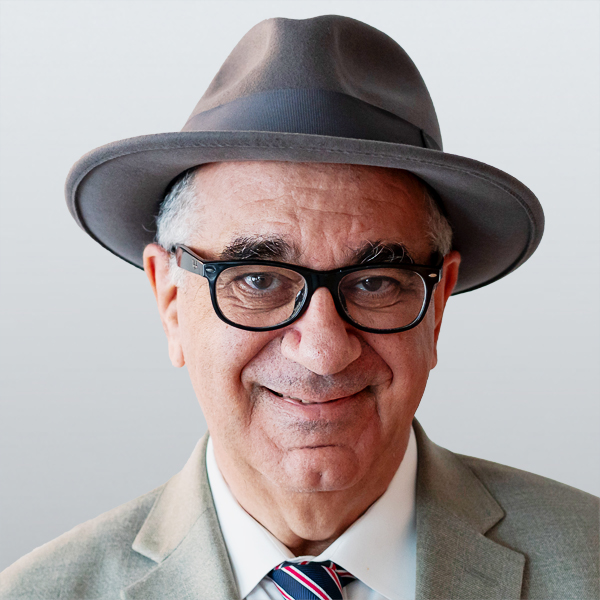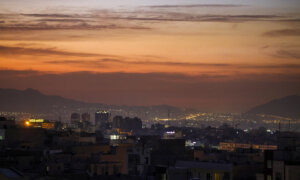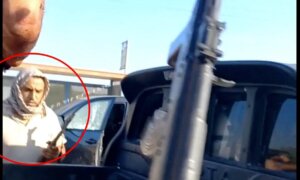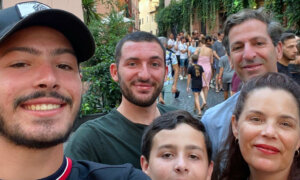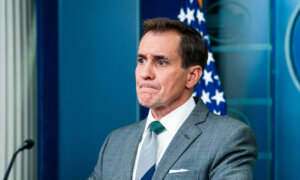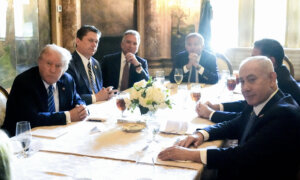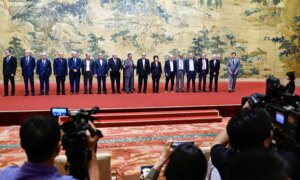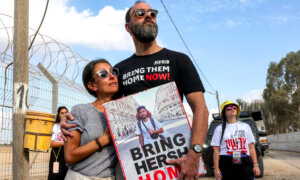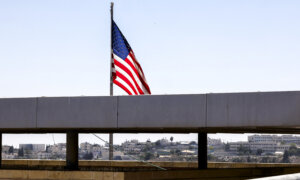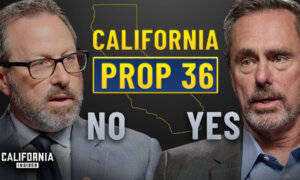Israel and the United Nations traded accusations on Oct. 14 in the growing controversy over U.N. peacekeepers in Lebanon, this time over a tank attack involving a U.N. base.
The U.N. said Israeli tanks burst onto the base in southern Lebanon shortly before dawn on Oct. 13. Its United Nations Interim Force in Lebanon (UNIFIL) peacekeeping force said two Merkava tanks destroyed the base’s main gate and forcibly entered. After they left, shells exploded 100 meters away, releasing smoke that blew across the base and sickened U.N. personnel, the force said in a statement.
Five U.N. force members have been wounded in recent days.
Israel disputed the account, with Prime Minister Benjamin Netanyahu saying the Iran-backed Hezbollah terrorist group uses the peacekeepers as “human shields.” Hezbollah denied that it uses proximity to peacekeepers for protection.
The Israel Defense Force (IDF) said Hezbollah had fired anti-tank missiles at Israeli troops, wounding 25 of them. The attack was very close to a UNIFIL post, and a tank helping evacuate the casualties under fire then backed into the UNIFIL post, the IDF said.
“It is not storming a base. It is not trying to enter a base. It was a tank under heavy fire, mass casualty event, backing up to get out of harm’s way,” the military’s international spokesperson Nadav Shoshani told reporters.
The IDF said it used the smokescreen to provide cover for the evacuation of wounded soldiers but that its actions provided no danger to the U.N. peacekeeping force.
Netanyahu, in a statement addressed to U.N. Secretary-General Antonio Guterres, said, “The time has come for you to withdraw UNIFIL from Hezbollah strongholds and from the combat zones.”
An IDF officer on Sunday showed reporters a Hezbollah tunnel less than 200 meters from a U.N. post in southern Lebanon. He said it was part of a tunnel complex built a few years ago.
UNIFIL’s peacekeepers “remain in all positions,” U.N. spokesperson Stephane Dujarric said in a statement issued later on Sunday, reiterating a warning from the secretary-general that peacekeepers must not be targeted.
“Attacks against peacekeepers are in breach of international law, including international humanitarian law. They may constitute a war crime,” Dujarric said.
UNIFIL has said previous Israeli attacks on a watchtower, cameras, communications equipment, and lighting had limited its monitoring abilities. U.N. sources say they fear any violations of international law in the conflict will be impossible to monitor.
U.S. Defense Secretary Lloyd Austin, in a Sunday call to his Israeli counterpart, Yoav Gallant, urged Israel to take all necessary measures to ensure U.N. forces’ safety and security as well as that of Lebanese armed forces.
The IDF said UNIFIL was deployed to south Lebanon to implement U.N. Security Council Resolution 1701 and prevent Hezbollah’s armed presence south of the Litani River. Both Lebanon and the U.N. have failed to implement the resolution since its passage in 2006, the IDF said.

Israeli soldiers display what they say is an entrance to a Hezbollah tunnel found during their ground operation in southern Lebanon, near the border with Israel, Sunday, Oct. 13, 2024. (AP Photo/Sam McNeil)
The IDF said Hezbollah has assembled weapons stockpiles near the border in violation of the resolution and has fired rockets incessantly at Israel from the zone since Oct. 8, 2023.
Hezbollah “has deliberately built up its attack infrastructure near UNIFIL posts,” the IDF said.
Hezbollah has fired 25 rockets in the last month from terrorist compounds embedded near UNIFIL posts, it said. One of those attacks killed two Israeli soldiers.
“The IDF’s targeted raids are only directed at Hezbollah, and the troops activities are not directed at UNIFIL posts, forces, or infrastructure,” the IDF said.
It said it had asked UNIFIL on Sept. 30, before its current operation on Lebanese soil began, to move its personnel away from posts located within 5 kilometers of the Blue Line, “as this area would become an active combat zone.”
The Blue Line is the cease-fire line between Israel and Lebanon dating back to 2000.
The IDF said it maintains continuous communication with UNIFIL to avoid “as much as possible” any harm to UNIFIL personnel.
The Associated Press and Reuters contributed to this report.
